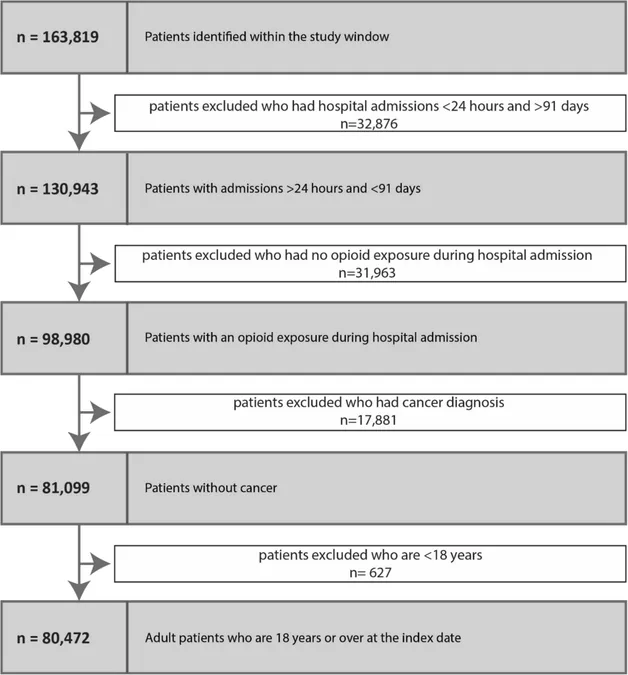
The Hidden Danger of Opioids: How They Can Cause Severe Constipation
2025-06-15
Author: Li
Opioids: A Double-Edged Sword
Pain relief is something many people turn to opioids for, but while these powerful medications can be lifesavers, they also come with a dark side—severe constipation. Reports indicate that up to 80% of patients using opioids face this uncomfortable condition, which can dramatically affect quality of life.
The Toll of Opioid-Induced Constipation
The issues caused by opioid-induced constipation go beyond mere discomfort. This condition can result in longer hospital stays, increased healthcare costs, and frequent emergency room visits. Despite its severity, it's often underreported, as patients may feel embarrassed to discuss bowel issues with their healthcare providers.
Breaking Down the Statistics
A systematic review shows that while 30% of older adults taking opioids experience constipation, surveys indicate this figure could soar to as high as 81% among those with chronic pain. However, relying solely on electronic health records (EHRs) might downplay the true prevalence of this problem, as many patients avoid mentioning it.
Understanding Risks Across Different Opioids
Not all opioids are created equal when it comes to the risk of inducing constipation. Physicians need to understand the differences in how various opioids perform in order to tailor pain management effectively. For example, prescribing a lower-risk opioid might be advisable for patients who have a history of constipation.
Study Overview: What Was Analyzed?
A recent study examined data from a large hospital in Northwest England, focusing on patient admissions between 2009 and 2020. Researchers aimed to quantify constipation risks across various opioids by analyzing data on medication administration, rather than simply prescriptions.
Who Was Included?
The study included adults aged 18 and over who were treated with opioids for non-cancer pain during hospital stays. Patients with any prior cancer diagnoses were excluded to provide a clearer view of opioid effects on those solely dealing with chronic pain.
The Findings: Constipation Rates by Opioid Type
Out of nearly 80,500 patients evaluated, about 8% experienced constipation episodes. The analysis revealed that those taking opioids like morphine, oxycodone, and fentanyl were significantly more likely to face severe constipation compared to those using codeine. Interestingly, tramadol displayed a lower risk, making it a potential alternative worth considering.
The Dose-Response Relationship
The research showed a clear link between higher daily doses of opioids (≥ 50 morphine milligram equivalents) and increased risk of constipation. Notably, doses above this threshold often yield no extra benefits in pain management but could significantly escalate side effects.
Implications for Patients and Providers
The implications of these findings are crucial for both clinical practice and public health. By recognizing the comparative risks associated with different opioid types and doses, healthcare providers can make more informed decisions, minimizing the risks of severe constipation. Increased awareness and proactive management of this side effect can dramatically improve patient outcomes and adherence to pain management protocols.
Conclusion: The Need for Smart Opioid Prescribing Practices
It's paramount for healthcare professionals to approach opioid prescribing with caution, particularly when it comes to managing higher doses. Opting for alternatives like tramadol where applicable can offer relief without the associated high risk of severe constipation, thus improving the overall quality of care.




 Brasil (PT)
Brasil (PT)
 Canada (EN)
Canada (EN)
 Chile (ES)
Chile (ES)
 Česko (CS)
Česko (CS)
 대한민국 (KO)
대한민국 (KO)
 España (ES)
España (ES)
 France (FR)
France (FR)
 Hong Kong (EN)
Hong Kong (EN)
 Italia (IT)
Italia (IT)
 日本 (JA)
日本 (JA)
 Magyarország (HU)
Magyarország (HU)
 Norge (NO)
Norge (NO)
 Polska (PL)
Polska (PL)
 Schweiz (DE)
Schweiz (DE)
 Singapore (EN)
Singapore (EN)
 Sverige (SV)
Sverige (SV)
 Suomi (FI)
Suomi (FI)
 Türkiye (TR)
Türkiye (TR)
 الإمارات العربية المتحدة (AR)
الإمارات العربية المتحدة (AR)